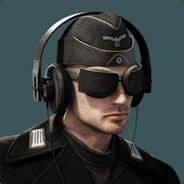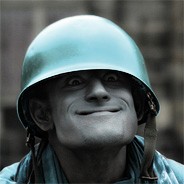200. раскройте скобки, употребляяглаголыводномизследующихвремен: present simple, past simple, present continuous, past continuous. 1. nina (to celebrate) her birthday yesterday. her room looked beautiful, there (to be) many flowers in it. when i (to come) in, somebody (to play) the piano, two or three pairs (to dance). 2. listen! somebody (to play) the piano. 3. i (to like) music very much. 4. when i (to look) out of the window, it (to rain) heavily and people (to hurry) along the streets. 5. what you (to do) at seven o'clock yesterday? — i (to have) supper. 6. when i (to come) home yesterday, i (to see) that all my family (to sit) round the table. father (to read) a letter from my uncle who (to live) in kiev. 7. where you (tobe) yesterday? — i (to be) at home the whole day. — how strange. i (to ring) you up at two o'clock, but nobody (to answer). — oh, i (to be) in the garden. i (to read) your book and (not to hear) the telephone. 8. what you (to do) at five o'clock yesterday? — i (to work) in the library. — i (to be) there, too, but i (not to see) you. 9. yesterday i (to work) at my english from five till seven. 10. it (to rain) the whole day yesterday. 11. where your sister (to be) now? — she (to be) in her room. she (to do) her homework. 201. раскройте скобки, употребляяглаголыводномизследующихвремен: present, past, future simple; present, past continuous. 1. look at these children: they (to skate) very well. 2. you (to skate) last sunday? — yes, we (to skate) the whole day last sunday. we (to skate) again next sunday. 3. my brother can skate very well. he (to skate) every sunday. 4. what you (to do) now? — i (to wash) the dishes. 5. what you (to do) at three o'clock yesterday? — i (to have) dinner. 6. you (to have) dinner now? 7. where your brother (to work)? — he (to work) at an institute. 8. your grandmother (to sleep) when you (to come) home yesterday? 9. what your brother (to do) tomorrow? 10. i (not to go) to the shop yesterday. i (to go) to the shop tomorrow. 11. where kate (to go) when you (to meet) her yesterday? 12. every day the boss (to enter) the office at nine o'clock. 13. yesterday the boss (to enter) the office at half past nine. 14. when the secretary (to come) tomorrow? 15. at six o'clock yesterday we (to listen) to a very interesting lecture. 16. when i (to enter) the office, the secretary (to type) some letters. 17. my friend (to ring) me up at eight o'clock yesterday.
Ответы на вопрос:
. 200. раскройте скобки, употребляяглаголыводномизследующихвремен: present simple, past simple, present continuous, past continuous. 1. nina celebrated her birthday yesterday. her room looked beautiful, there were many flowers in it. when i came in, somebody was playing the piano, two or three pairs were dancing. 2. listen! somebody is playing the piano. 3. i like music very much. 4. when i looked out of the window, it was raining heavily and people were hurrying along the streets. 5. what were you doing at seven o'clock yesterday? — i was having supper. 6. when i came home yesterday, i saw that all my family was sitting round the table. father was reading a letter from my uncle who lived in kiev. 7. where were you yesterday? — i was at home the whole day. — how strange. i rang you up at two o'clock, but nobody answered. — oh, i was in the garden. i was reading your book and did not hear the telephone. 8. what wereyou doing at five o'clock yesterday? — i was working in the library. — i was there, too, but i did not see you. 9. yesterday i was working at my english from five till seven. 10. it was raining the whole day yesterday. 11. where is your sister now? — she is in her room. she is doing her homework.
. 201. раскройте скобки, употребляяглаголыводномизследующихвремен: present, past, future simple; present, past continuous. 1. look at these children: they are skating very well. 2.did you skate last sunday? — yes, we were skating the whole day last sunday. we will skate again next sunday. 3. my brother can skate very well. he skates every sunday. 4. what are you doing now? — i am washing the dishes. 5. what were you doing at three o'clock yesterday? — i was having dinner. 6. are you haveing dinner now? 7. where does your brother work? — he works at an institute. 8. was your grandmother sleeping when you came home yesterday? 9. what will your brother do tomorrow? 10. i did not go to the shop yesterday. i will go to the shop tomorrow. 11. where was kate going when you met her yesterday? 12. every day the boss enters the office at nine o'clock. 13. yesterday the boss entered the office at half past nine. 14. when will the secretary come tomorrow? 15. at six o'clock yesterday we were listening to a very interesting lecture. 16. when i entered the office, the secretary was typing some letters. 17. my friend rang)me up at eight o'clock yesterday.
Реши свою проблему, спроси otvet5GPT
-
Быстро
Мгновенный ответ на твой вопрос -
Точно
Бот обладает знаниями во всех сферах -
Бесплатно
Задай вопрос и получи ответ бесплатно

Популярно: Английский язык
-
подалуйста это произведение а задания пришлю заного я прислал упраднение...
 milakaty22.02.2020 06:04
milakaty22.02.2020 06:04 -
6 Imagine you are sending a time capsule into space. In the time...
 konor27109.10.2021 03:01
konor27109.10.2021 03:01 -
подалуйста это текст шас пришлю упражнение заного я прислал упражнение...
 glupiychelovek20.10.2022 23:00
glupiychelovek20.10.2022 23:00 -
Portfolio: Your school magazine is holding a(n) adventure/humorous/mystery...
 mrsos2226.06.2022 22:58
mrsos2226.06.2022 22:58 -
the 3 Look at the model text and complete the key phrases. Then write...
 Лизатян404.09.2022 16:19
Лизатян404.09.2022 16:19 -
50б// Объясните разницу между present perfect continous и past perfect...
 hren423.12.2022 23:33
hren423.12.2022 23:33 -
надо 3 формы + - ? в Past Simple...
 perizatttt07.12.2020 03:37
perizatttt07.12.2020 03:37 -
Английский язык 6 класс 29 стр 4 упр...
 dashok3216.07.2021 11:11
dashok3216.07.2021 11:11 -
Нужно задать вопрос к выделенному слову: khadija *likes* to listen...
 boss11023.01.2021 06:59
boss11023.01.2021 06:59 -
12. вставить где нужно артикли и объяснить почему....
 shdbrjhb03.10.2020 08:06
shdbrjhb03.10.2020 08:06

Есть вопросы?
-
Как otvet5GPT работает?
otvet5GPT использует большую языковую модель вместе с базой данных GPT для обеспечения высококачественных образовательных результатов. otvet5GPT действует как доступный академический ресурс вне класса. -
Сколько это стоит?
Проект находиться на стадии тестирования и все услуги бесплатны. -
Могу ли я использовать otvet5GPT в школе?
Конечно! Нейросеть может помочь вам делать конспекты лекций, придумывать идеи в классе и многое другое! -
В чем отличия от ChatGPT?
otvet5GPT черпает академические источники из собственной базы данных и предназначен специально для студентов. otvet5GPT также адаптируется к вашему стилю письма, предоставляя ряд образовательных инструментов, предназначенных для улучшения обучения.
